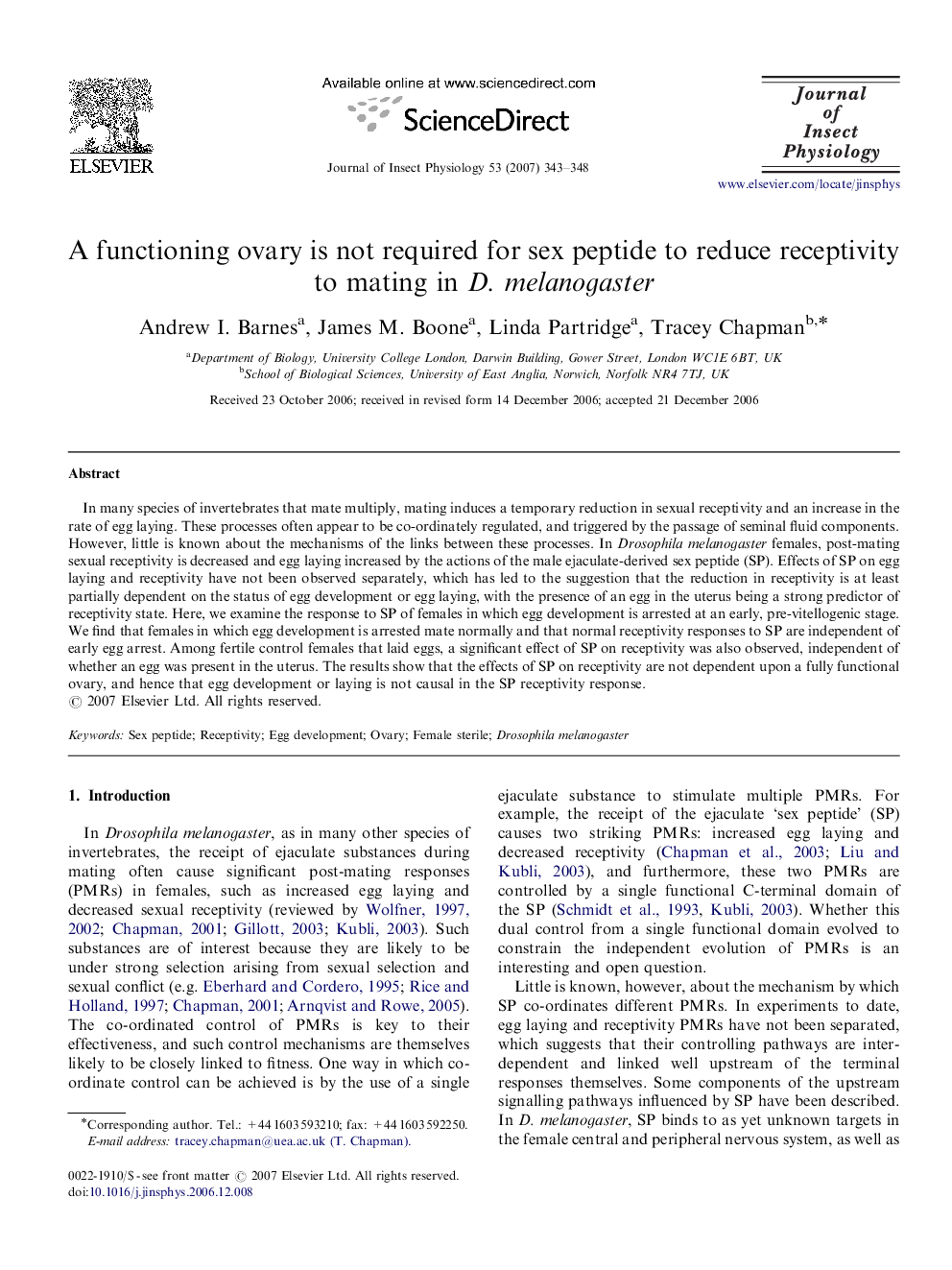| کد مقاله | کد نشریه | سال انتشار | مقاله انگلیسی | نسخه تمام متن |
|---|---|---|---|---|
| 2841644 | 1165417 | 2007 | 6 صفحه PDF | دانلود رایگان |

In many species of invertebrates that mate multiply, mating induces a temporary reduction in sexual receptivity and an increase in the rate of egg laying. These processes often appear to be co-ordinately regulated, and triggered by the passage of seminal fluid components. However, little is known about the mechanisms of the links between these processes. In Drosophila melanogaster females, post-mating sexual receptivity is decreased and egg laying increased by the actions of the male ejaculate-derived sex peptide (SP). Effects of SP on egg laying and receptivity have not been observed separately, which has led to the suggestion that the reduction in receptivity is at least partially dependent on the status of egg development or egg laying, with the presence of an egg in the uterus being a strong predictor of receptivity state. Here, we examine the response to SP of females in which egg development is arrested at an early, pre-vitellogenic stage. We find that females in which egg development is arrested mate normally and that normal receptivity responses to SP are independent of early egg arrest. Among fertile control females that laid eggs, a significant effect of SP on receptivity was also observed, independent of whether an egg was present in the uterus. The results show that the effects of SP on receptivity are not dependent upon a fully functional ovary, and hence that egg development or laying is not causal in the SP receptivity response.
Journal: Journal of Insect Physiology - Volume 53, Issue 4, April 2007, Pages 343–348